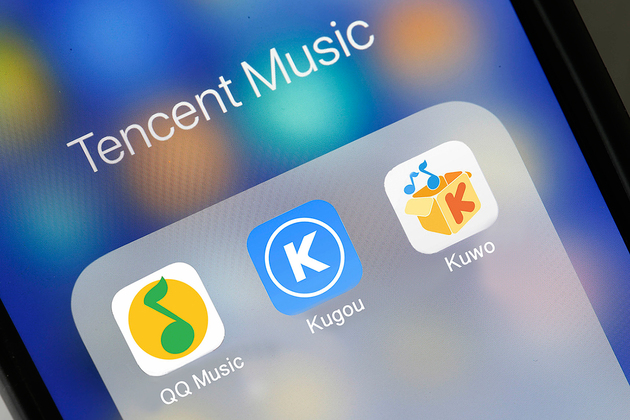
Photo/VCG
The music arm of Tencent Holdings Ltd pressed the play button on its long-anticipated initial public offering in New York on Monday, two months after halting the plan amid hopes of a recovery of global market conditions.
According to updated filings with the United States Securities and Exchange Commission, Tencent Music Entertainment Group said it seeks to raise between 1.07 billion U.S. dollars and 1.23 billion U.S. dollars in a New York Stock Exchange listing by year-end.
According to the prospectus, the music streaming firm is selling a total of 82 million American depositary shares in the fundraising at an estimated price between 13 U.S. dollars and 15 U.S. dollars.
At 1.23 billion U.S. dollars, or the higher end of the range, the IPO would make TME the third-largest Chinese company in the US this year, trailing video streaming site iQiyi at 2.4 billion U.S. dollars and social commerce player Pindouduo's 1.6 billion U.S. dollars.
"The delay is largely due to worries that the steep global stock market sell-off might affect the pricing," said Neil Wang, president of consultancy Frost&Sullivan China. "The business itself is in a fairly healthy state."
With a combined 800 million monthly active users, Tencent's music subsidiary runs four leading mobile music apps in China, namely QQ Music, Kugou Music, Kuwo Music and mobile karaoke app WeSing.
It reported a 244 percent jump in profit in the first nine months of this year to 394 million U.S. dollars from 114 million U.S. dollars in the same period in 2017, thanks to user subscriptions for online music services and the purchase of social entertainment services, including livestreaming, sales of music-related merchandise and virtual gifting.
The company claimed that users spent on average more than 70 minutes per day on its various platforms in the third quarter. The number of paying customers reached 23.3 million, making up 3.6 percent of all users.
Tencent has a 58 percent stake in TME, while Swedish music streaming peer Spotify Technology took 9.1 percent following a stock swap late last year.
They claimed over 80 percent in terms of monthly active users, distantly followed by rival Net-Ease Inc's music arm at 66.8 million and other even smaller players including Alibaba Group Holding Ltd's Xiami Music, consultancy QuestMobile said in January.
"Cultural habits have changed over the years from downloading everything for free to paying for the right sort of digital content," Wang said. "This leaves huge room for growth for the leading platforms in the industry."
Emerging business scenarios, such as live karaoke and the distribution of original music, are also set to see growth in the long term, he added.
China's online music pan-entertainment market, which contains online music services, online karaoke, ads, and music copyright operations, is expected to grow at a compound annual growth rate of 37 percent to 215.2 billion yuan (32.5 billion U.S. dollars) by 2023, according to estimates from consultancy iResearch.
Email: tanyuhan@nbd.com.cn


 川公网安备 51019002001991号
川公网安备 51019002001991号





